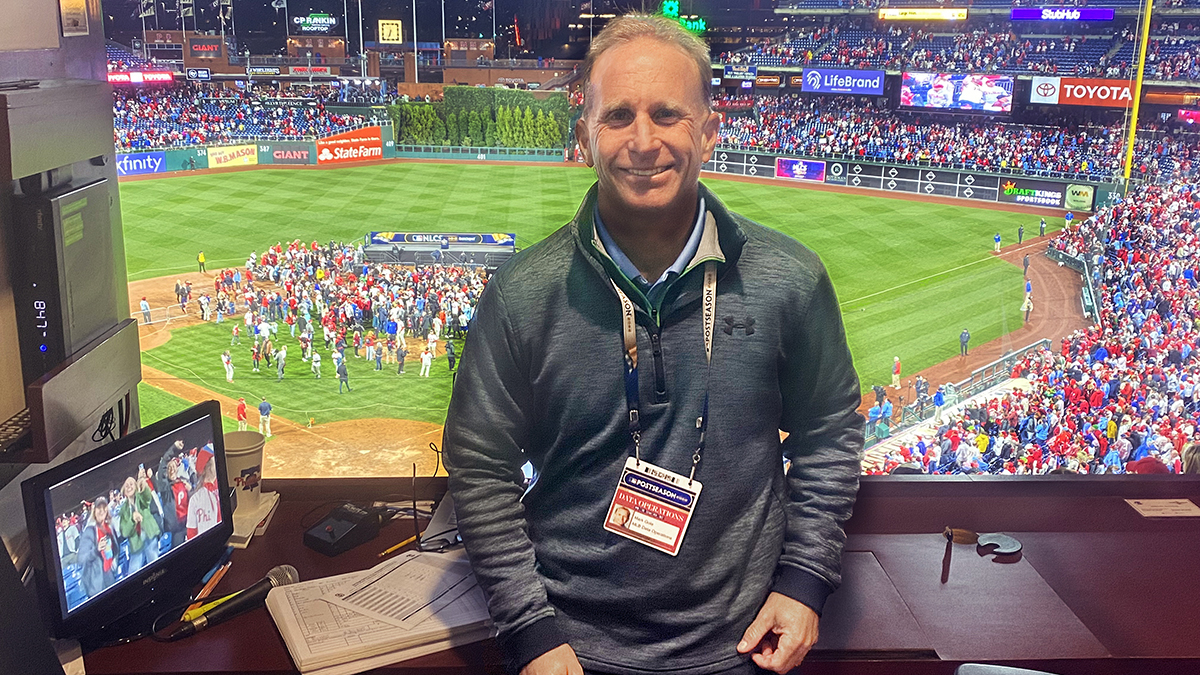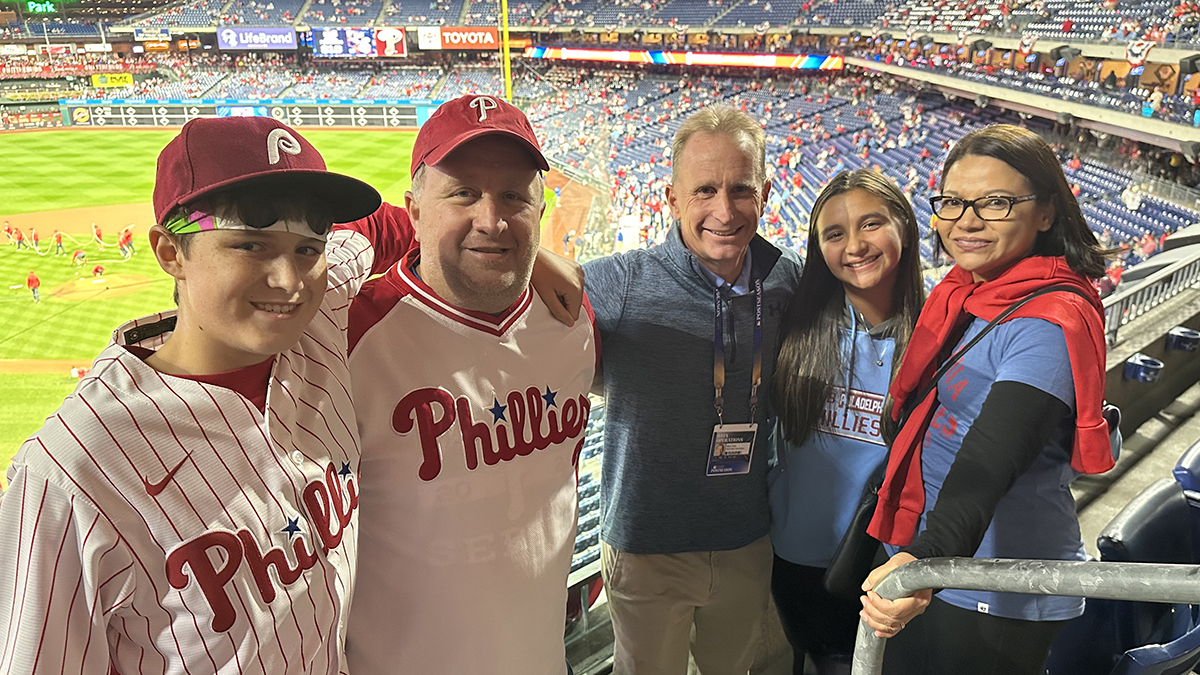Wednesday, Oct 25, 2023
Mark Gola ’94 relies on his judgment to create the official records of games
by Adam Grybowski

During game four of the 2022 World Series, anxiety seized Citizens Bank Park in Philadelphia. The visiting Houston Astros were on the verge of a historic no-hitter against the surging Phillies, and while nerves were on display in the stands and on the field, few likely gave much thought to the man on edge in the press box.
"During the last three innings, I was hoping every pitch was going to be clean," says Mark Gola ’94, one of the Phillies official Major League Baseball scorers who was working that game. "My chair is a lonely one to be in when there's a no-hitter on the line."
As it turns out, four Astros pitchers combined to blank the Phillies — only the second no-hitter in World Series history — without controversy. But when it comes to tough calls, the rulebook empowers scorers to be the sole authority on judging what will become the official record. Their responsibility is to record every outcome that happens during a game. Gola, for example, has to decipher hits from errors, which can make the difference between a pitcher earning a no-hitter or not.
From his perch in the press box, Gola can also see the game from multiple camera angles appearing on a laptop. He has the ability to re-watch each play on a six-second delay. Despite the technology, he is careful to stay faithful to his real-time perception.
“I pretty much stick with what I see,” Gola says. “Technology has provided some new tools, but you have to be careful how you allow them to factor into your judgment because you can’t deliberate too long. When you make a decision, you want it to be with conviction.”

In his life, Gola has observed many baseball games from many different angles — first as a lifelong fan and then on the field as a standout Division I player with Rider University. He served as a hitting coach for Rider and Princeton University and worked in several athletic roles, including assistant director of athletic communications for The College of New Jersey. He brings all of those perspectives to his job as an official Major League Baseball scorer.
“For scoring a game, you have to watch it a little differently than you would otherwise,” says Gola. “You have to watch the field completely. All the different sides of the game I’ve been on help me be objective and see the game comprehensively. Things can happen quickly and you have to trust yourself.”
This is Gola’s sixth season on the job, where he happens to work with a familiar face — Mike Maconi, a former director of operations for Facilities at Rider, is also an official scorer for the Phillies. Gola can proudly say he’s scored in high-stakes National League Championship and World Series games, but even regular season games present their challenges.
In 2018, during Gola’s first game, it only took five pitches for him to face his first test. José Peraza of the Cincinnati Reds hit a fly ball deep to center. Odúbel Herrera, the Phillies’ center fielder, pedaled back to the warning track, where the ball ricocheted off his glove.
During games, scorers have an open line of communication with the press, play-by-play announcers and scoreboard operators by announcing calls over the press box microphone. “On that first play, everyone is looking at you, waiting for your call,” Gola says. “It was a baptism by fire and I ended up announcing it was scored an error.”
Now, after so many similar experiences and other challenging calls, Gola knows no one is always going to agree with him. Nevertheless, his goals remain the same: to put his emotions to the side and retain his composure and the ability to always be able to explain his rationale for his decisions.
“Ninety percent of what I do, almost anyone who has played the game can do it,” he says. “It’s the other plays where you earn your money. That’s what the official scorer is there for.”
